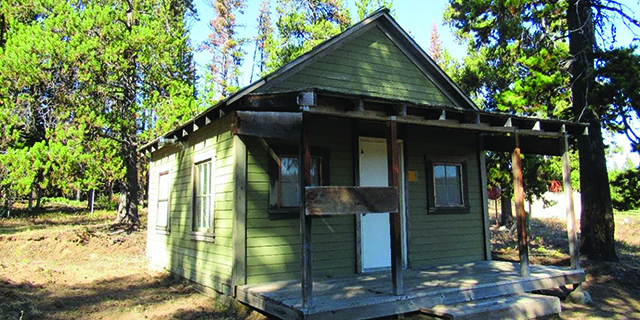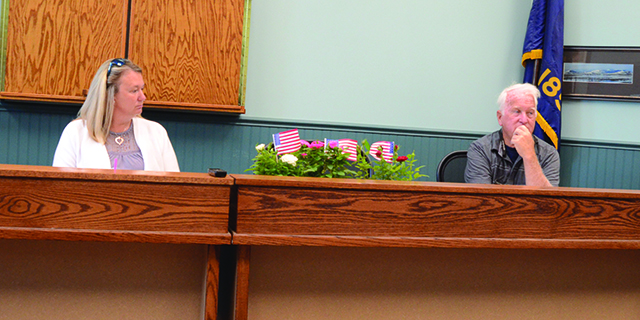Op-Ed: Holistic health services builds strong communities
Published 6:51 pm Wednesday, April 10, 2019

- Chantay Jett
Oregon has both vibrant urban centers and remote rural communities. Regardless of our demography or geography, we share a common challenge: Providing access to quality behavioral health services for the thousands of Oregonians who need them.
A recent report released by Mental Health America ranked Oregon among the worst states when it comes to the prevalence of mental illness and access to care. The “good” news, if it can be called that, is that our rank has slightly improved. Oregon was in 49th place in 2017 and moved to 44th in 2018.
Trending
What prompted this change? An obvious answer is funding the 12 Certified Community Behavioral Health Clinics in Oregon, one of which is housed here in Wallowa County.
The 2014 bipartisan Excellence in Mental Health Act established CCBHC demonstration projects in eight states, including Oregon. Since launching in 2017, Oregon has leveraged new funding to dramatically improve access to community-based addiction and mental health care, particularly opioid addiction services.
CCBHCs in Oregon have hired new addiction-focused clinicians, expanded medication-assisted treatment and other addiction services, and reduced patient wait times. However, without immediate congressional action, the CCBHC demonstration funding is set to expire on March 31, 2019, and Oregonians’ access to these lifesaving treatments could be lost.
The infusion of federal funding has been transformative for Wallowa Valley Center for Wellness in the rural community of Enterprise.
We have doubled the number of people we are able to serve, a significant accomplishment with profound ripple effects. By integrating primary care with behavioral health care, we are treating the entire person with comprehensive and high-quality preventative care. This high level of care is currently being provided through co-location with Winding Waters Clinic at two different locations and through partnerships with other local primary care providers.
For example, when someone comes into our clinic experiencing a mental health crisis, one of the first things we do is check for decayed teeth or a urinary tract infection. Both are common among people with persistent mental illness and dramatically exacerbate the distress of the patient. When we address the physical health symptoms quickly, it has an immediate settling effect on the patient, which in turn makes them more likely to engage in much-needed mental health treatment.
Trending
Another place we’ve seen impact is in our criminal justice system. Too many people with substance use disorders and mental illnesses end up in jail with limited access to quality treatment. Thanks to this funding, mental health providers and law enforcement officers can work together to respond to a crisis call and connect individuals to services in the community as an alternative to locking them up.
For a small community like ours with only four police officers, the results are substantial.
Wallowa County is home to a high number of veterans, more than the national average. While many are attracted by the seclusion Oregon offers, the opportunity to get away from everything may not be a healthy option for veterans struggling with an addiction or experiencing a mental health crisis.
Before receiving CCBHC funding, in addition to overcoming the stigma of seeking care, many veterans had to travel at least two hours to receive treatment. With additional funding, we have increased the number of veterans served tenfold. We are collaborating with the Department of Veterans Affairs to offer post-traumatic stress disorder support groups and tele-health services to enable veterans to receive care from their homes.
But all these services are at risk and the people whose lives have been changed because of them are also at risk if CCBHC funding expires on March 31. Without this funding, our center would certainly have to reduce expenses and cut essential services. We simply cannot let this happen, in Wallowa County or in the communities served by the other 11 CCBHCs across the state.
That’s why we are urging Sens. Jeff Merkley and Ron Wyden and Reps. Suzanne Bonamici, Greg Walden, Earl Blumenauer, Peter DeFazio and Kurt Schrader to support immediate passage of the Excellence in Mental Health and Addiction Treatment Expansion Act, which would ensure that Oregon does not abandon the progress made expanding mental health and addiction care by extending current CCBHCs’ activities for one more year. We have come too far and made too many important and hard-fought gains to turn back now.
If you have any questions please contact our Public Relations Department at 541-426-4524 ex 1031
Chantay Jett is the executive director for Wallowa Valley Center for Wellness. Joel Fish, Enterprise Chief of Police, is a 27-year police veteran, formerly of Hickory, North Carolina.









